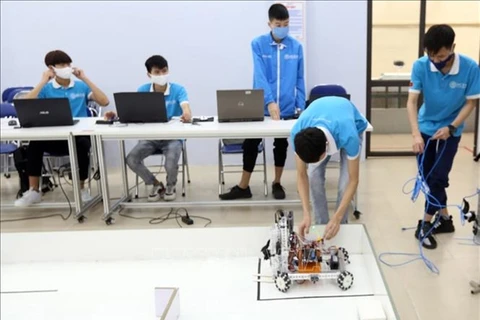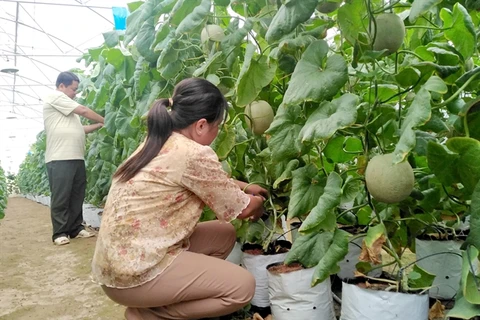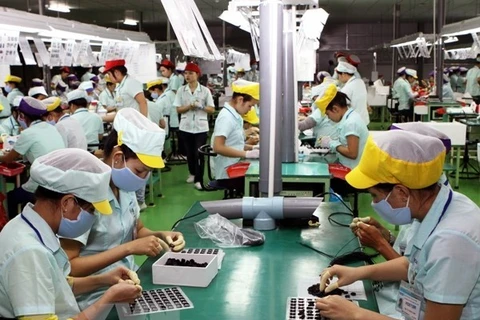Hanoi (VNA) - The Government's flexible response to the COVID-19 pandemic and vaccine strategy has created a strong impetus for domestic enterprises to accelerate production recovery, boosting recruitment for enterprises after the Tet (Lunar New Year) holiday and averting the risk of labour shortages.
High demand
Ho Chi Minh City will need 44,800-55,600 employees in the period, according to the city’s Human Resources Forecast and Labour Market Information (FALMI) Centre.
The available jobs are primarily in the fields of commercial business, consulting services, scientific research and development, information technology, textile, leather footwear, transportation services and industrial electricity.
As most enterprises in the southern industrial hub of Binh Duong resume production, human resources demand has been on the rise.
Businesses need 40,000-50,000 labourers to fill the orders. The recruitment needs are reported in textile, garment and footwear, electronics and foods, according to the provincial Centre for Employment Services.
“The Government’s economic reopening policies and COVID-19 vaccination programme are creating growth momentum for the business community in Vietnam,” said Nguyen Xuan Son, operations manager, staffing and outsourcing services of ManpowerGroup Vietnam.
Industries such as manufacturing, warehousing and logistics are witnessing a strong revival and are expected to attract almost the entire workforce back to the cities after the Lunar New Year holiday, he said.
“Currently, ManpowerGroup Vietnam has received numerous orders for staffing and outsourcing services from domestic and foreign enterprises, especially in the e-commerce, food processing, electrical and electronic manufacturing, transportation and logistics sectors,” Son added.
No serious labour shortage
A survey conducted by the General Statistics Office showed that up to 2.2 million workers returned to their hometowns in 2021 during the fourth wave of the COVID-19 pandemic.
This workforce is forecast to return to the labour market after Tet. Furthermore, localities and businesses have many incentives aiming to lure these workers after Tet, so a serious labour shortage is unlikely to occur.
Businesses are expected to have recruitment needs of about 700,000 people in 2022, according to a survey by the Ministry of Labour, Invalids and Social Affairs (MOLISA) in key provinces and cities.
The labour shortage has not occurred at the beginning of the year but is likely to happen in the second quarter of this year. The need to recruit new workers will rise once businesses resume operation at the highest capacity.
Vu Quang Thanh, deputy director of the Hanoi Centre of Employment Services, said there is no immediate shortage of labour in the capital city of Hanoi in the coming time. The pandemic is being controlled well, despite the increase in the number of new infections.
“Along with the rapid speed of vaccination, businesses must now pay more attention to the safety of workers. These factors will attract workers to continue to return to the market, especially those who have returned to their hometowns,” he said.
In the northern province of Bac Giang Nguyen Van Hue, director of Bac Giang Centre for Employment Services, said that the labour market of the province is stable.
After the Lunar New Year, there will be a shortage of workers in the construction sector as many businesses have poured capital into the province, he said, adding that no mass exodus of labourers quitting their jobs after the Tet holiday was reported over the past two years.
MOLISA warned that the risk of labour shortages will be prevented with the promulgation of solutions and policies to assist businesses and ensure social security as well as health for employees.
The programme, which aims to support the recovery and development of the labour market, has just been issued by the ministry and is expected to contribute to solving difficulties in recruitment shortly./.
























